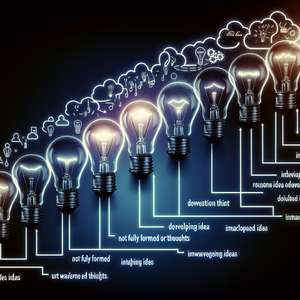The Impact of Austin's Tech Companies on Local Culture

One of the most immediate impacts of tech growth in Austin is the surge in housing prices and the overall cost of living. As companies expand and attract talent from across the nation, the demand for housing has skyrocketed. In 2021, home prices in Austin increased by over 30% compared to the previous year, leading to concerns about affordability. This shift has displaced long-time residents and altered the demographic makeup of neighborhoods, prompting discussions about gentrification and the need for affordable housing solutions. Supporting Example: A report from the Austin Board of Realtors highlighted that the median home price in Austin reached $500,000 in 2021, a threshold previously unseen. This trend has led to an influx of luxury apartment complexes, catering to the higher-income tech workforce and leaving many local families struggling to find affordable options. The rising cost of living has also forced some to consider relocating to surrounding areas, further fragmenting the community.
Cultural Dynamics and Community Identity
The influx of tech professionals has significantly influenced Austin's cultural landscape. Known for its slogan "Keep Austin Weird," the city has traditionally celebrated its eclectic, artistic community. However, as tech companies establish their presence, some fear that the essence of Austin's identity might be diluted. The challenge lies in integrating the tech workforce with the local culture, ensuring that new developments do not overshadow the city’s artistic roots. Supporting Example: The annual South by Southwest (SXSW) festival, which initially focused on music and film, has increasingly incorporated technology, drawing attention from global tech firms. While this expansion has brought economic benefits, some local artists express concerns that the festival now prioritizes corporate sponsorship over grassroots creativity. The shift in focus has led to debates about the festival's future direction, as it becomes a platform for large tech firms rather than a celebration of local talent.
Impact on Local Businesses and Employment
The tech boom has created a ripple effect on local businesses, ranging from coffee shops to restaurants and retail stores. As new residents flock to the city, local entrepreneurs have found opportunities to cater to a more affluent customer base. However, this also raises concerns about the survival of longstanding local businesses that may struggle to compete with larger, tech-backed corporations. Supporting Example: A study by the Greater Austin Chamber of Commerce indicated that over 70% of new jobs in the area were created by tech firms, leading to higher disposable incomes. However, some small business owners argue that the influx of big tech has led to a loss of authenticity in the local economy, as chains and franchises replace independent shops. The pressure on local businesses has prompted some to band together in coalitions to advocate for policies that support small enterprises, fostering a sense of community amidst growing corporate influence.
Social Dynamics and Community Engagement
The tech industry’s rise has also impacted social dynamics within Austin. With a large influx of newcomers, the cultural exchange between long-time residents and new arrivals has become both a challenge and an opportunity. Initiatives aimed at fostering community engagement and inclusivity are crucial to maintaining social cohesion. Supporting Example: Programs like the Austin Tech Alliance have emerged, promoting collaboration between tech companies and local communities. Such initiatives help bridge the gap between different groups, encouraging tech employees to engage with and support local causes, thereby fostering a sense of belonging. Additionally, many tech firms are increasingly investing in community service projects, which can help foster goodwill and mitigate the perception of tech companies as outsiders disrupting local culture.
Austin's transformation into a thriving tech hub has undeniably brought economic growth and innovation, but it has also posed significant challenges to the preservation of the city’s unique culture. As the local community navigates these changes, it is essential to find a balance that honors Austin's rich artistic heritage while embracing the opportunities that the tech industry presents. By fostering collaboration between tech companies and local residents, Austin can continue to thrive as a vibrant, inclusive city that truly embodies the spirit of innovation without losing sight of its cultural roots. Only through intentional efforts can Austin maintain its identity as a creative and culturally rich city amidst the tech wave reshaping its future.
Data Scientist
Dell, IBM, BigCommerce
Core Responsibilities
Analyze complex data sets to derive actionable insights and support strategic decision-making.
Develop predictive models and machine learning algorithms to improve product offerings and customer experience.
Collaborate with cross-functional teams to identify business opportunities and drive data-driven initiatives.
Required Skills
Proficiency in programming languages such as Python or R, along with experience using data visualization tools like Tableau or Power BI.
Strong statistical analysis skills and familiarity with machine learning frameworks such as TensorFlow or Scikit-learn.
Excellent problem-solving skills and the ability to communicate technical concepts to non-technical stakeholders.
UX/UI Designer
Google, Facebook, T3
Core Responsibilities
Create intuitive and engaging user interfaces for web and mobile applications.
Conduct user research and usability testing to gather feedback and improve design solutions.
Collaborate with developers and product managers to ensure design feasibility and alignment with user needs.
Required Skills
Expertise in design tools such as Adobe Creative Suite, Sketch, or Figma.
Strong understanding of user-centered design principles and experience with responsive web design.
Ability to build prototypes and wireframes, as well as a keen eye for aesthetics and detail.
Cloud Solutions Architect
Oracle, IBM
Core Responsibilities
Design and implement cloud-based solutions tailored to client needs, ensuring scalability and security.
Collaborate with software development teams to integrate cloud services into existing applications.
Provide guidance on cloud technology trends and best practices, and conduct training for technical teams.
Required Skills
In-depth knowledge of cloud platforms such as AWS, Azure, or Google Cloud Platform.
Experience with containerization technologies like Docker and orchestration tools such as Kubernetes.
Strong communication skills to effectively convey technical concepts to clients and stakeholders.
Cybersecurity Analyst
Cybersecurity firms, Dell
Core Responsibilities
Monitor and analyze network traffic for potential security breaches and vulnerabilities.
Develop and implement security protocols to protect sensitive data and ensure compliance with industry regulations.
Conduct penetration testing and risk assessments to identify weaknesses in systems and recommend improvements.
Required Skills
Knowledge of security frameworks such as NIST or ISO 27001, and familiarity with incident response procedures.
Proficiency in security tools (e.g., firewalls, intrusion detection systems) and programming skills in languages such as Python or Java.
Strong analytical skills and attention to detail, as well as the ability to work well under pressure.
Product Manager (Tech)
Facebook, Google, HomeAway, Acorns
Core Responsibilities
Define product vision and strategy, and prioritize features based on market research and customer feedback.
Collaborate with engineering, marketing, and sales teams to ensure successful product launches and lifecycle management.
Analyze key performance metrics to drive data-informed decisions that enhance product offerings.
Required Skills
Strong understanding of the software development lifecycle and agile methodologies.
Excellent communication and leadership skills, with the ability to influence cross-functional teams.
Experience with product management tools like Jira, Trello, or Asana, and strong analytical skills to interpret data and market trends.


